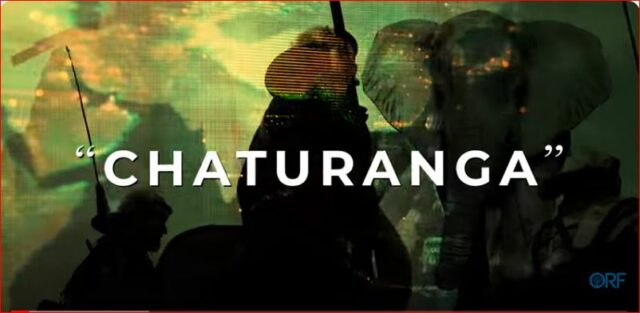The 9th edition of the Raisina Dialogue opens in Delhi on Wednesday with Kyriakos Mitsotakis, the Prime Minister of Greece, doing the inaugural honours with Prime Minister Narendra Modi.
Organised by the Observer Research Foundation and the Ministry of External Affairs, the annual flagship conference on geopolitics and geo-economics from February 21 to 23, is titled Chaturanga: Conflict, Contest, Cooperate and Create. Chaturanga is an ancient Indian battlefield strategy game using infantry, cavalry, chariots and elephants.
Participating are former heads of state, serving ministers, military commanders, captains of industry, technology leaders, academics, journalists and scholars on strategic affairs, Experts from leading think tanks, and youth from over 100 countries will also take part with the focus on six thematic pillars:
1. Tech Frontiers: Regulations & Realities
How will technology affect political stability? How do political structures affect the speed and adoption of innovation? Is the private sector’s influence pushing us towards a digital dystopia? What role will fintech and digital public infrastructure play in advancing development for all?
2. Peace with the Planet: Invest & Innovate
Political objections to assertive climate action have been growing, especially in the Global North. How can the private sector be made a partner in the decarbonisation effort? What would an energy transition that respects the Global South’s needs look like? How can the environmental impact of international finance be aligned with sustainability, ethical investments, and responsible financial practices?
3. War & Peace: Armouries & Asymmetries
New forms of war and battlefields are emerging, and new centres of power are determining their technological and human capacity for warfare. Is the decades-long thrust on maritime power receding? How will future conflicts be fought? What are the lessons from the new battlefields? How do these lessons impact the balance of power between states and long-term decision-making by security establishments?
4. Decolonising Multilateralism: Institutions & Inclusion
The long shadow of the pandemic, an ongoing war in Europe, and instability in West Asia have thrown up new challenges while the rise of the Global South has called into question the very basis of the postcolonial order. As new multilateral frameworks emerge, can they be both useful and inclusive? How is this assertion being received by established powers? How are rising geographies like Latin America, West Asia and Africa putting their stamp on multilateral architecture?
5. The Post-2030 Agenda: People & Progress
In 2030, the world will need to craft a new grammar for cooperation and development. What role will the private sector — and philanthropy — play in this agenda, and how can they be held accountable? How will security considerations define development goals and partnerships? What will be the main contours of development cooperation?
6. Defending Democracy: Society & Sovereignty
As the world’s largest democracies head into elections this year, questions are being raised about democracy’s ability to withstand the pressure of a multi-truth world. Can democracies mitigate the threat of election interference from bad actors and non-democratic forces? Will the intersection of and conflict between global norms and local practices cause a rift between Western and non-Western democracies? Can democracy survive the 4th Industrial Revolution unscathed?
An External Affairs Ministry release said over 2500 participants from about 115 countries will be joining the Dialogue in-person, and the proceedings will be viewed by millions across the world on various digital platforms.
Also see:
















